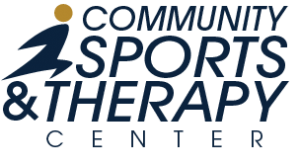Dear Therapist,
My grandma was recently in the hospital and she had to drink this jello looking liquid instead of water. What is this stuff and why does she have to drink this instead of just regular water?
Stephanie T. | Celina, OH
It is called thickened liquids. The hardest thing to swallow is a thin liquid which is contrary to what other people think. The reason why thin liquids are so difficult to swallow is because they go down so fast and the muscles don’t have time to react. So, if you thicken the liquids that they drink then they are able to adjust their muscles and then the water will not go into their lungs.
Andrea McGee, CCC-SLP
Community Sports & Therapy Center
Thickened liquids, what are they?
Some liquids, such as water, are considered thin liquid. Contrary to what people think thin liquids are the hardest thing to swallow because they go down so fast and the muscles in your throat don’t have time to react.
By thickening the liquids that you drink you have better control over the liquid in your mouth. This allows you to adjust your muscles to slow down the flow rate of the liquids. This lessens your chance of the liquid going into your airway or “down the wrong pipe.”
Why is this important?
Liquids that go into your airway end up in your lungs. This is called aspiration, and if it happens frequently, it can cause pneumonia or a lung infection. Since often these patients are either weak, elderly or immuno-compromised already a lung infection can be a life-threatening condition.
What does it taste like?
Nobody wants poor grandma to have to drink something awful tasting. The good news is most drinks can be thickened without changing the taste. The change in the consistency, however, may take some getting used to.
Is this only a problem in the elderly?
While difficulty swallowing, also known as dysphagia is more common in the elderly, anyone can have a swallowing disorder. Normal aging can reduce muscle tone in the pharynx and esophagus which affects swallowing. Serious swallowing problems can also occur with Parkinson’s disease or other neurological conditions, strokes, head or spinal cord injuries or cancer of the head, neck or esophagus.
Some children also have trouble swallowing for a vast array of reasons. They may struggle to take a bottle or nurse, cough or even gag when drinking liquids or eating. These are all signs of possible dysphasia and you should talk to your child’s primary care provider about it immediately. We offer speech therapy for all ages including pediatric patients.
How do you determine if thickened liquids are needed or if dysphagia is present?
The need for thickened liquids is determined by a swallow evaluation completed by a licensed speech therapist. The SLP will determine how thick the liquids need thickened to safely swallow. You or a caretaker will be taught how to thicken your liquids. Sometimes you also might be taught a different way to swallow to make your swallowing safe. Also, you will be enrolled in swallow therapy so that eventually you can return safely to regular liquids.
The SLP may recommend a further radiological study called a modified barium swallow study. This would involve you swallowing different consistencies of liquids and foods under an X-ray so that our speech therapist and radiologist can see exactly how your swallow is working with different foods and liquids.
If you have questions about our speech therapy program you can call us at 419-678-OHIO.
We offer speech therapy services in both our Coldwater and Celina locations. You can request an evaluation directly here or visit our website for more information.
Do you have a therapy question you need help answering? Please submit your questions to us at hello@cstcenter.com so we can help you answer them!
